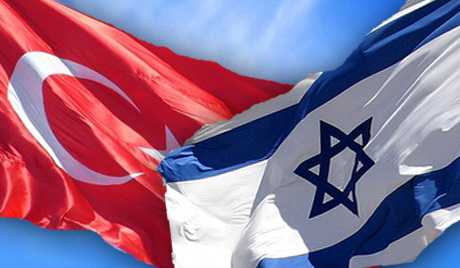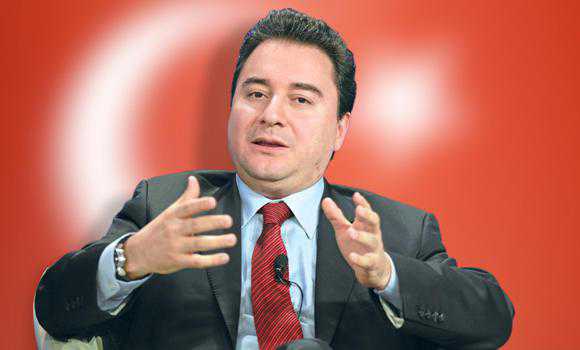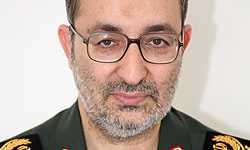Daniel Hannan
Daniel Hannan is a writer and journalist, and has been Conservative MEP for South East England since 1999. He speaks French and Spanish and loves Europe, but believes that the European Union is making its constituent nations poorer, less democratic and less free.

Israel is right to apologise to Turkey – though it leaves some Western commentators looking silly
By Daniel Hannan Politics Last updated: March 23rd, 2013
A good working relationship is essential for the region
Israelis like to say that they live in a tough neighbourhood, and it’s true. Since its foundation, the Jewish state has been surrounded by hostile dictatorships. The fact that, through all its wars, it remained a democracy – and a gloriously messy, disputatious, cussed democracy, at that – is little short of miraculous.
I remember, some years ago, seeing the place where the military authorities had originally placed part of the protective wall, and then the place to which it had been moved following a successful legal challenge. In how many Middle Eastern countries, I wondered, would the rule of law trump the generals’ decision?
In tough neighbourhoods, you need friends. For a long time, Israel was able to weather the antagonism of surrounding states because it had a workmanlike relationship with Egypt and an entente – it stopped short of being an alliance – with Turkey.
The worst foreign policy failure of the current government – a government which I broadly support – was to alienate these two countries in succession. In both cases, the rupture came about because of unplanned accidents of the sort that happen whenever soldiers are deployed. No one suggests that the Israeli government wanted its troops to shoot at Egyptian security forces, or to kill Turkish blockade-runners. In both cases, though, a swift and sincere apology would have helped smooth things over.
Instead, the Israeli authorities became prickly and defensive, refusing to admit any fault and privately claiming that the other side was looking for an excuse to break off links. In the case of Egypt, these claims might have had an element of truth, though a more emollient attitude would none the less have strengthened the hand of Cairo moderates and attracted the goodwill of neutrals. In the case of Turkey, Israel’s reaction was incomprehensible. Turkey, the region’s chief military power, was the first Muslim country to recognise the Israeli state, and the armed forces of the two countries had long enjoyed close relations. It is true that, for some years before the flotilla incident in 2010, Ankara had been critical of Israeli policy in Gaza. All the more reason, then, not to vindicate the arguments of Turkey’s most anti-Israel elements.
Binyamin Netanyahu deserves credit for having had the generosity and wisdom to correct his mistake. As the civil war in Syria drags on, Israel and Turkey have more reason than ever to work together. His apology has, inevitably, led to some Western writers complaining that the Israeli commandos who stormed the ship were victims rather than aggressors, but it is more than a little eccentric to keep insisting that there is nothing to apologise for when the Likud-led government has already apologised. Most of these writers perfunctorily tell us that Israel “shouldn’t be beyond criticism”; but, in practice, they never seem to allow such criticism.
Few subjects create such with-us-or-against us sentiment. Simply taking the line I have – that Israel is entitled to defend itself, that it has every right to respond militarily to the Hamas rocket attacks, but that it was wrong to attack a Turkish-flagged vessel in international waters – will convince both sides that I am against them: watch the comment thread that follows.
Israel needs to engage constructively with democratic forces in the region. It’s true that, in the cacophony that followed the Arab Spring, some previously suppressed anti-Israel voices dominated. But it is equally true that democracies tend to be less bellicose than dictatorships.
In the long run, Israel’s security lies in cleaning up the neighbourhood – evicting the anti-social louts, so to speak, and replacing them with hard-working families. It won’t be easy. Some of those families will have awkward views, and conversations across the garden fence will often be fraught. But at least the teenagers will no longer be throwing bottles at your house.
To put it more prosaically, Israel – like the West – needs to develop a decent working relationship with democratic Muslim parties. Repairing relations with Turkey was a vital first step.
Tags: AK Parti, Bibi Netanyahu, Erdogan, flotilla, Gaza
via Israel is right to apologise to Turkey – though it leaves some Western commentators looking silly – Telegraph Blogs.
 Ali Babacan, deputy prime minister of Turkey, has said that relations between his country and Saudi Arabia are built on strong and solid historic and cultural foundations.
Ali Babacan, deputy prime minister of Turkey, has said that relations between his country and Saudi Arabia are built on strong and solid historic and cultural foundations.




